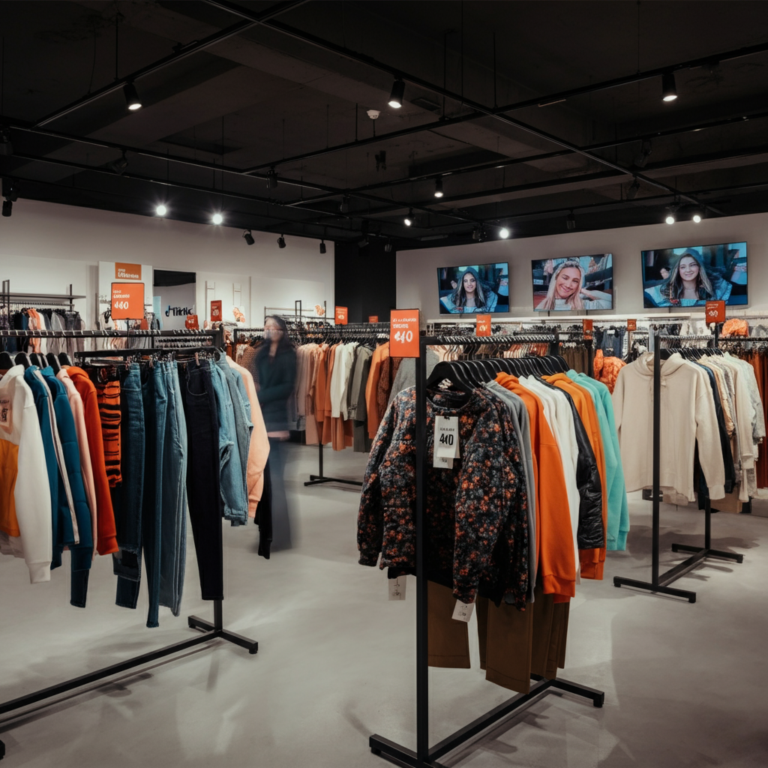Cider has gained significant attention in the fashion industry for its trendy designs, affordability, and strong social media presence. However, as sustainability awareness grows, consumers and critics question whether Cider aligns with the widely debated fast fashion model. This blog examines what fast fashion entails, why Cider is often labeled a fast fashion brand, and its claims of sustainability, aiming to provide a clear verdict.
Table of Contents
What Is Fast Fashion?
The term “fast fashion” refers to a business model that focuses on rapidly producing low-cost, trendy clothing to meet high consumer demand. It relies on rapid production cycles and extensive marketing through social media, often prioritizing quantity over quality and overlooking sustainability and ethical considerations.
Key Characteristics of Fast Fashion:
- Trendy and Affordable Clothing
Fast-fashion brands often replicate runway styles or seasonal trends at a fraction of the cost, making them accessible to the mass market.
- Rapid Production Cycles
Clothing collections are turned around in weeks rather than months to capitalize on fleeting trends.
- Reliance on Social Media
Social media platforms like TikTok and Instagram play a significant role in promoting fast fashion, primarily through influencer partnerships and viral trends.
- Lack of transparency
Many fast fashion brands fail to provide detailed information on their supply chains, labour practices, or sourcing, leaving consumers in the dark.
- Encouraging Overconsumption
The availability of low-cost clothing encourages consumers to buy more than they need, contributing to widespread environmental harm.
Why Cider Aligns with Fast Fashion
Considering the characteristics above, Cider’s business practices overlap significantly with the fast fashion model. Below are the key indicators:
1. Trendy and Affordable Clothing
Cider markets a wide variety of fashionable styles at competitive prices, with many items priced under $40. Its trendy designs, targeting Gen Z and millennial shoppers, are typical hallmarks of fast fashion.
2. Rapid Production Cycles
Cider’s frequent “new drops” mimic the rapid production model of brands like Shein and Zara. Its ability to release fresh collections quickly suggests a fast-paced production at the heart of its operations.
3. Heavy Reliance on Social Media
Cider uses platforms like TikTok and Instagram extensively, leveraging influencers and viral trends to promote its products. This direct connection with younger audiences fuels impulse buying and rapid sales turnover, which is central to fast fashion marketing strategies.
4. Lack of Transparency
Cider currently offers limited information about its supply chain. Key details, such as labour practices and the environmental impact of its production processes, remain unclear. Transparency is critical, and this gap raises questions about the brand’s ethics.
5. Concerns about Sustainability
Although Cider claims to adopt “sustainable” practices, critics argue these efforts merely scratch the surface of sustainability. The widespread use of synthetic materials, such as polyester, which contribute to environmental degradation, undermines its sustainability claims.
Addressing Cider’s Claims of Sustainability
Cider promotes its “smart fashion” model as a move toward sustainability. It emphasizes producing small batches of clothing and offers a #ReCider collection featuring recycled materials. However, its initiatives often face scepticism.
Why the Skepticism?
- Minimal Impact: The #ReCider collection constitutes only a fraction of Cider’s production, meaning most of its clothing falls under the fast-fashion framework.
- Greenwashing Concerns: While initiatives like “smart fashion” sound promising, experts argue they are more about marketing than meaningful change. Critics often label such efforts as greenwashing to deflect attention from a brand’s core fast-fashion practices.
- No Proven Metrics: The absence of detailed reports or metrics on supply chain ethics or environmental impact adds to the credibility issue.
The Impact of Fast Fashion
Environmental Concerns
Fast fashion significantly contributes to pollution and resource exploitation—the production of synthetic fabrics, such as polyester, results in microplastic pollution and excessive carbon emissions. Additionally, rapid production cycles contribute to textile waste, with millions of garments ending up in landfills each year.
Ethical Issues
Concerns about worker conditions and fair wages are prevalent in the fast fashion industry. Lack of transparency about manufacturing processes often reveals poor working conditions and unsustainable labour practices.
Final Verdict on Cider
Based on its product offerings, production methods, and marketing strategies, Cider closely aligns with the fast fashion model. While it has taken modest steps toward sustainability, its predominant reliance on affordability, trendiness, and rapid production suggests a business model that is at odds with the principles of ethical and sustainable fashion.
Cider’s positioning may appeal to shoppers seeking affordable, stylish options but also highlights the broader need for consumers to consider the environmental and social costs associated with fast fashion.
FAQs
What is fast fashion?
Fast fashion refers to a business model that emphasizes high-speed production of low-cost, trendy clothing to meet consumer demand. Sustainability and ethical practices are often deprioritized.
Is Cider ethical?
Cider lacks transparency regarding its supply chain and labour practices, which raises concerns about its ethical standing. While it markets some sustainable initiatives, these efforts are limited.
How can consumers make more sustainable choices?
To shop more sustainably, prioritize brands with clear commitments to environmental responsibility and ethical labour practices. Consider purchasing secondhand clothing or investing in timeless, high-quality pieces over trendy fast-fashion items.
What materials does Cider use?
Cider’s clothing predominantly features synthetic materials, such as polyester. While it has introduced limited recycled fabric options through its #ReCider collection, these represent a small portion of its product range.
What is Cider’s “smart fashion” model?
Cider advertises its “smart fashion” model as a sustainable approach focused on producing small batches of clothing to reduce overstock. However, critics argue this model is short of addressing broader concerns tied to fast fashion.


